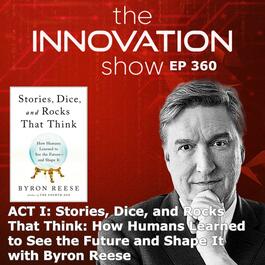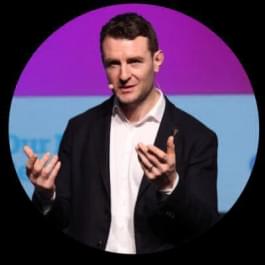
Stories, Dice, and Rocks That Think Act I with Byron Reese
Look around. Clearly, we humans are radically different from the other creatures on this planet. But why? Where are the Bronze Age beavers? The Iron Age iguanas? In today’s episode, our guest argues that we humans owe our special status to our ability to imagine the future and recall the past, escaping the perpetual present that all other living creatures are trapped in. Envisioning human history as the development of a societal superorganism he names Agora, our guest shows us how this escape enabled us to share knowledge on an unprecedented scale, and predict—and eventually master—the future. He unravels our history as an intelligent species in three acts: Act I: Ancient humans undergo “the awakening,” developing the cognitive ability to mentally time-travel using language Act II: In 17th century France, the mathematical framework known as 'probability theory' is born—a science for seeing into the future that we used to build the modern world Act III: Beginning with the invention of the computer chip, humanity creates machines to gaze into the future with even more precision, overcoming the limits of our brains We welcome back the author of “Stories, Dice, and Rocks That Think: How Humans Learned to See the Future--and Shape It” friend of the show, Byron Reese. Find Byron here: www.byronreese.com
From "The Innovation Show"




Comments
Add comment Feedback